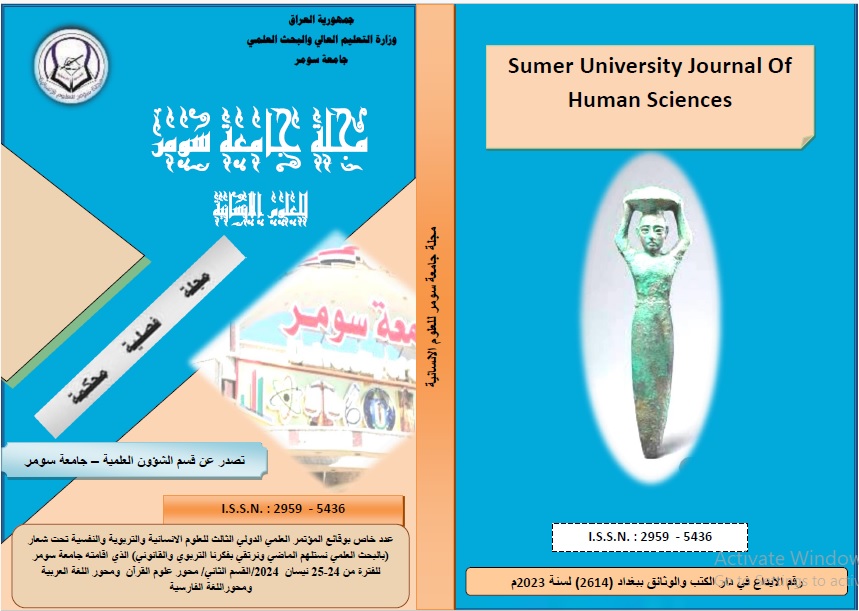The dialectics of sectarian identity in Iraq and ways to consolidate it
Keywords:
الديالكتيك/ الهوية العقدية / العراقAbstract
The hypothesis of the research tends to reveal the dialect of nodal identity as a decisive factor in the process of building the state and its stability since its establishment until the present time, especially since Iraq is one of the societies that consist of ethnic, religious or cultural groups that have not reached the level of integrating these sub-affiliations in order to Reaching a common and public identity that takes on the interests of these groups with their cultural, ethnic and religious affiliations. And based on specific questions: Is the state’s adoption of a model based on nationalism the main source of the ethnic and religious identity crises that have emerged since the establishment of the Iraqi Republic until the present day? Does the common identity mean the removal or marginalization of sub-affiliations? Is there really an identity crisis? Or is it a crisis at the origin of the political meeting of the Iraqis, what is a crisis of existence at all? The research division is divided into three axes; The first examines: the nodal identity and the presence of the other in the formulation of the ego.
The second axis discusses: the sources of nodal identity and political subjugation ,it deals with the saying about the ideological identity and the culture of political subjugation. The research concluded that the identity problem in general, and the dogmatic in particular, is due to the disagreement and not the difference that is rooted in the weakness of social awareness from within, that is, from the self-first, and from the other second, although the separation between them is always arbitrary, due to the existence of a dialectical relationship between them. In addition to the hateful sectarian and ethnic distinction, which was a dangerous mine that was laid with the cornerstone of building the modern Iraqi state in 1921, where the Iraqi founders, with the support and planning of Britain, insisted on continuing the Ottoman Empire’s policy of sectarian and ethnic discrimination during four centuries of its unjust rule of Iraq against components The Iraqi people and the monopoly of one component of power, influence and privileges.


